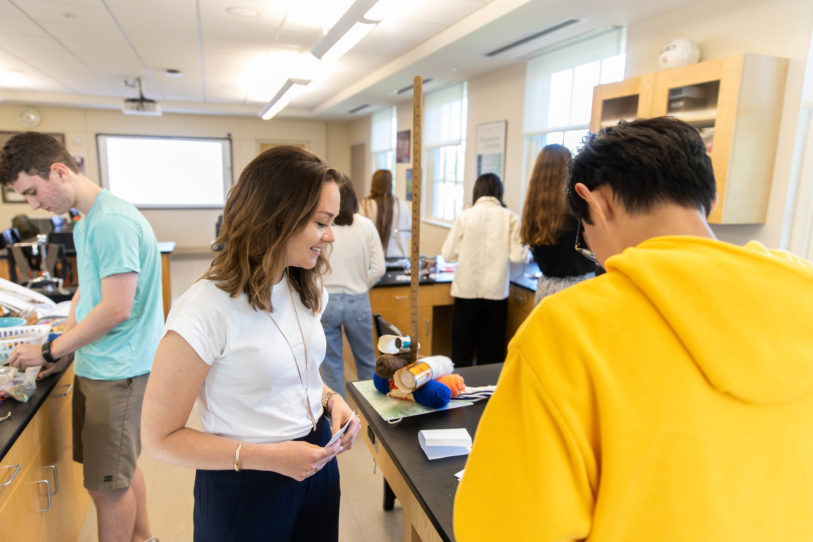We can all tell when our body sends signals that our back is sore, an ankle is sprained, or a stomach is upset. We find ways to push through the pain until it subsides. We seek support from experts to help us manage the discomfort; our health center staff, an athletic trainer, or, as a student, perhaps from mom or dad. With care and attention, these physical signs diminish, and we go about our day-to-day routines.
Often, our body language exhibits more than physical distress but emotions as well. Is this a signal that you are cognizant of? Or, is there an emotional experience in these moments that overrides your awareness of slumped shoulders, a head hung low, a dejected look, or a fearful expression?

An educator’s perspective
As an educator witnessing and working with students in action regularly, teaching awareness for the way we communicate through body language, as well as with our voice and actions, is an essential attribute to craft. At New Hampton School, we work with great intention to assist our students in finding their voice, to learn self-advocacy, to build strong friendships, and to push the limits of their comfort zone through meaningful individual or group experiences. A vital ingredient in this goal is the importance of managing one’s body language, but are we being explicit enough?
We ask students to perform on multiple stages throughout our busy weeks. We see them react to an assessment with a smile that lifts their posture, celebrate goals or victories on the athletic field with exuberance, or rejoice following a day-off announcement for Foliage Day. The converse: a slumped body on an athletic field after giving up a big play to an opponent, a head down as we enter the classroom, or slouching posture when a test is returned—these signals tell a very different story.

Defining the language of character
Body language is synonymous with character. As we coach our students toward adulthood, we want their body language to shout poise and confidence in the face of adversity. Failure is a reality we want New Hampton students to experience as a significant and necessary event that brings them closer to the outcome they seek. Their lesson is not defeat, but a form of feedback as they hone their skills and strategies.
I believe this is part of why we focus on foundational steps rather than outcomes. Our course competencies and Habits of Mind effort grading system are designed to help students focus on what matters most in the short term. Properly addressed, this will yield the desired results. No one is perfect.

Real-life examples
I see this play out less often in sports on a professional level; we have a great opportunity to embrace this work and raise awareness with our high school students and young athletes. A professional baseball player fails to reach base during a majority of their at-bats, a basketball player misses more shots than they make. What we want our students to understand from the beauty of sports is that there is always the next play, often immediately. That play matters more than the one that just happened. In school, a science experiment may fail initially, but we persevere and keep trying. There is always another assessment, an opportunity to re-write a paper, or a faculty member eager to help you understand your setback and how to get back on track.

Self-awareness and reflection
I know when my body language can be poor. It might surface when I have a dissatisfied customer, or a presentation didn’t go as planned, and it indeed arises at 11:00 pm in the winter when I have to take the dogs out! If I am self-aware enough to know when I might reflect negative emotions through my posture, I know how to counteract the inclination and demonstrate character through more positive expressions.
I hope that we can help our students be aware of what their body language tells those around them in these difficult moments. With this awareness, a shift in their body language can shift their perspective or vice versa. In the end, we can coach our students to display, through actions, language, and posture, the confidence and positive attitude that are hallmarks of a New Hampton School graduate.




